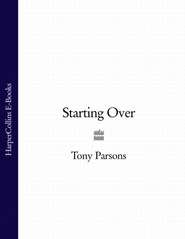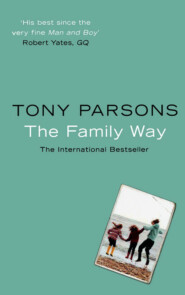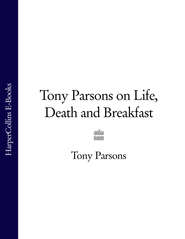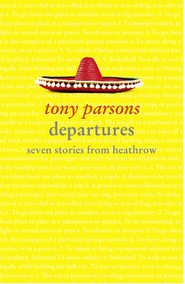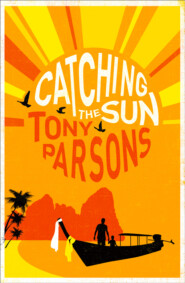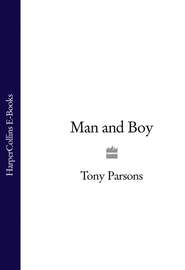По всем вопросам обращайтесь на: info@litportal.ru
(©) 2003-2024.
✖
Stories We Could Tell
Автор
Год написания книги
2018
Настройки чтения
Размер шрифта
Высота строк
Поля
Something had happened to Leon at the weekend that made slagging off – let’s see, what do we have here? – ‘Float On’ by the Floaters or ‘Easy’ by the Commodores or ‘Silver Lady’ by David ‘Starsky’ Soul – or was he ‘Hutch’? – seem beneath him.
Something had happened at the weekend that had changed the way Leon looked at the world. So he picked up ‘Silver Lady’ -Starsky or Hutch grinning like a lobotomised Osmond on the picture sleeve – and flung it across the room like a Frisbee. The seven-inch slice of vinyl shattered with a satisfying, surprisingly loud crack against the far wall. It felt good.
So good in fact that Leon did the same with ‘Float On’. And then ‘Easy’. And then ‘You Got What It Takes’ by Showaddywaddy. Leon picked up ‘Fanfare for the Common Man’, the new single by Emerson, Lake and Palmer, and that was tossed with particular venom. Soon the review room was covered in shards of splintered vinyl.
Leon pushed back the stacks of singles and began leafing through the most recent issue of The Paper, sighing at the soul-shrivelling trivia of it all. Didn’t these people know what was going on in the world?
There was Dag Wood on the cover, doing his tired old heroic-junkie routine by the Berlin Wall. Leon was pleased for Terry – could imagine him puffing up with pride at the sight of his story on the cover – but come on. As if Lou Reed hadn’t done it all first and better! As if Dag Wood actually knew the difference between Karl Marx and Groucho!
Terry’s such a sucker for all that rock-god schtick, Leon thought. They all are up here.
Leon yawned, and turned to page two, sighing at the sight of the charts. Mindless disco crud ruled the singles – Donna Summer faking multiple orgasms all over ‘I Feel Love’ – and, top of the albums, music to help tranked-out housewives hobble through the menopause. The Johnny Mathis Collection.
Leon snorted with derision. He flicked through The Paper, his fingers, like his mood, becoming blacker by the second.
Eater to record first album during school holidays…new singles by Pilot, Gentle Giant and the Roy Wood Band…new albums by Ry Cooder, Boney M and the Modern Lovers…
And then – finally! – at the bottom of page 11, jostled into a corner by a massive ad for Aerosmith at Reading and a world exclusive on the break-up of Steeleye Span, there were a few brief paragraphs that held Leon’s interest and made his heart start pumping. The piece had his by-line.
The National Front plan to parade through a black neighbourhood this coming weekend. Hiding their racist views behind an anti-mugging campaign and countless Union Jacks, the NF plan to leave from Clifton Rise, New Cross. Their route and the time of the march remain undisclosed.
A peaceful counter demonstration planned by local umbrella group the All Lewisham Campaign Against Racism and Fascism (ALCARAF) will assemble in Ladywell Fields, next to the British Rail Ladywell Station, at 11 a.m.
Be there or be square.
The magazine had appeared on newsstands nationwide the previous Thursday, and in London as far back as last Wednesday. A lifetime away, thought Leon. Because last Saturday the march and the counter demonstration had combined to produce the biggest riot London had seen since the war. And Leon Peck had been there.
I was there, he thought, touching the bruise on his cheekbone where he had been clipped by the knee of a policeman on horse-back. I saw it happen. While many of his peers were dreaming of seeing Aerosmith at Reading, Leon had been in the middle of the riot at Lewisham, crushed in with the protesters being forced back by the police and their horses, and he had felt as if the world was ending.
Flags waving, bricks flying, policemen on horses riding into the crowds, the battle lines ebbing and flowing – screaming, righteous chaos all around. Orange smoke bombs on Lewisham High Street, the air full of masonry, dustbins, bottles and screams, taunts, chanting. The sound of plate-glass windows collapsing.
What he remembered most was the physical sensation of the riot, the way he experienced it in his blood and bones. His legs turning to water with terror as the air filled with missiles and the police spurred their horses into the crowd, his heart pumping at the sight of the loathing on the faces of the marchers, and the raging anger he felt at the sight of these bigots parading their racist views through a neighbourhood where almost everyone was black.
He had never felt so scared in his life. And yet there was never a place where he was so glad to be.
It mattered. It mattered more than anything. Leon Peck, child of peace and prosperity, had spent his Saturday afternoon doing what his father had done in Italy during the war, in Sicily and Monte Cassino and the march on Rome. Fighting Nazis.
Leon didn’t kid himself. Lewisham had been one Saturday out of his life. It couldn’t compare to what the old man had done in World War Two. But the experience had been like nothing he had ever known.
When he was younger than today, Leon had been involved in student politics at school and at university. But this was some thing else. The Pakistani shopkeeper at the end of the road where Leon was squatting had had his face opened up by a racist with a Stanley knife. The Nazis were coming back. It was really happening. And you either did something about it, or you went to see Aerosmith at Reading.
Later that sunny Saturday, just when the riot was starting to feel like one of those visions he’d had when he was dropping acid in the lecture halls of the London School of Economics, Leon had stopped outside an electrical shop on Oxford Street and watched the news on a dozen different TV sets. The riot was the first story. The only story. A quarter of the Metropolitan Police Force had been there, and they couldn’t stop it.
Leon wondered if any of the readers of The Paper had gone to Lewisham because of his few measly paragraphs. He wondered if he had done any good. He wondered if soon the – he had to consult his own article here – the ALCARAF would be the name on everyone’s lips. But then he turned the page and the classified ads brought him back to reality. This was what their readers were interested in.
LOOK SCANDINAVIAN! Scandinavian-style clogs – £5.50…Cheesecloth shirts for £2.70 plus 20p postage and packing…Cotton Drill Loons. ‘A good quality cotton drill in the original hip-fitting loons.’ Still only £2.60.
Leon’s thoughts turned reluctantly to fashion, and he wondered, Who wears this crap? Leon himself looked like a shorthaired Ramone – a London spin on a New York archetype. A style that said – I am making an effort, but not much of one.
Leon’s face and body had not quite caught up with the greasy machismo of his clothes. At twenty he was still whiplash thin, frail and boyish, looking as though he only had to shave about once a week.
His Lewis Leather biker’s jacket sported a plastic badge on the lapel featuring the Jimmy Hill-like profile of Vladimir Ilyich Lenin. He wore drainpipe Levi’s, a threadbare Thin Lizzy T-shirt and white Adidas trainers with three blue stripes down the side. Pretty much the standard uniform for the enlightened urban male in the summer of 1977, although Leon had topped off his look with a trilby hat from a charity shop. Funnily enough, you couldn’t buy that look in the back of The Paper, where they were still packaging what was left of the spirit of the Sixties.
Cannabis leaf jewellery. Solid silver leaf pendant on real silver chain- £7.
Leon closed The Paper, shaking his head. He adjusted his trilby. It was as if nothing had changed. It was as if there wasn’t a war on.
It seemed to Leon that everyone he knew was living in some old Sixties dream. The people he worked with at The Paper, all of the readers, his father – especially his father, a man who had belonged to CND for a few years but who now belonged to a golf club.
What was wrong with them? Didn’t they realise it was time to take a stand? What did they think the National Front was doing marching in South London? He touched the bruise on his cheek again, and wished it could stay there for ever.
This wasn’t about some little style option – the choice between long hair or spiky, flared trousers or straight, Elvis or Johnny Rotten. It was about a more fundamental choice – not between the NF and the SWP, who were daubing their rival slogans all over the city, like the Sharks and Jets of political extremism – but the choice between evil, hatred, racism, xenophobia, bigotry, and everything that was their opposite.
The memory of Lewisham still made him shake with fear. The rocks showering down on the marchers. The faces twisted with hatred. The police lashing out with truncheon, boot or knee. The sudden eruption of hand-to-hand fighting as marcher or demonstrator broke through the police lines, fists and feet flying. And the horses, shitting themselves with terror as they were driven into the protesters. Leon knew how those horses felt. Lewisham had been the first violence that he had been involved in since a fight in the playground at junior school. And he had lost that one.
Mind you, Leon thought, she was a very big girl for nine.
He thumbed through the singles until he found something worth playing. ‘Pretty Vacant’ by the Sex Pistols. He put the record on the turntable, placed the needle on the record, and pulled the arm back for repeat play. Then, as the stuttering guitar riff came pouring out of the speakers, he set about destroying the rest of the singles. The Jacksons, Donna Summer, Hot Chocolate, Carly Simon and the Brotherhood of Man – all of them were thrown to their doom across the review room, all of them perished in a dramatic explosion of vinyl.
Leon was about to launch Boney M’s ‘Ma Baker’ when the door to the review room opened and standing there was an elderly black cleaner with a Hoover in his hands, staring open-mouthed at the destroyed vinyl that littered the carpet.
‘What the goodness you doing in here, man?’ the cleaner said.
‘I’m doing the singles,’ Leon said, his face burning with embarrassment. ‘I was just about to clear all this up.’
Watched by the cleaner, Leon got down on his hands and knees and began picking up the smashed records, his mouth fixed in a smile that he hoped showed solidarity, and some sort of apology.
‘I hope you like curry,’ Terry’s mum said to Misty.
‘I love curry,’ Misty said. ‘In fact, my father was born in India.’
Terry shot her a look. He didn’t know that Misty’s dad had been born in India. It seemed there were a lot of things he didn’t know about her, despite being together since Christmas.
Misty and Terry and his parents crowded awkwardly in the tiny hallway. Misty was making some rapturous speech about the glories of the Raj and something Kipling had written about the correct way to cook chicken tikka masala. Terry’s parents smiled politely as she babbled on. His father took her photographers bag. Terry noticed that she had unclipped her pink fake mink handcuffs, and stuffed them in the bag. It was her first visit to his home and everyone was making an effort. Misty had turned the charm up to ten and Terry’s dad had put his shirt on. Terry’s mum had prepared a special menu and Terry hadn’t brought any of his laundry home.
They entered the front room where an old film was blaring from the telly in the corner. For a moment it commanded all their attention. Tony Curtis and Sidney Poitier were runaways from a chain gang, a white racist and a proud black man, still handcuffed together.
‘TheDefiant Ones,’ said Terry’s mum. ‘He was lovely, Tony Curtis.’
‘I’ll turn that thing off,’ said Terry’s dad. That was a sure sign that royalty was visiting. They never turned the TV off until it told them to go to bed.
‘What was it that Truffaut said about life before television?’ Misty said, her lovely face frowning with concentration.
‘I don’t quite recall, dear,’ said Terry’s mum, as if she had been asked the name of Des O’Connor’s last single, and it was on the tip of her tongue.
‘Truffaut said that before television was invented, people stared at the fire.’ Misty looked very serious, as she always did when relating the thoughts of one of her heroes. ‘He said that there has always been this need for moving pictures.’
They all thought about it for a while.






